A true challenge is one where to finish isn’t a certainty.
Words by Paul Errington, courtesy of XPDTN3. Photos by Marc Gasch.
Since riding my first gravel event in 2012, I knew this element of the big world of cycling events was for me. After that initial experience I have taken up any opportunity to travel to ride new events and different areas.
When I first heard about Jeroboam 300 I was sold on the whole deal: Italy, great weather, good food, beautiful scenery, and a whole new set of people I would get to ride with. The event, as the name suggests, is 300km in length (though offering shorter 150km Magnum and 75km Standard versions also). [For those more inclined to drink beer: ‘jeroboam’ refers to a 300 cl bottle of wine. -Ed.] Set in Erbusco, a town to the south of Lake Iseo between the cities of Brescia and Bergamo, the course runs out north, passing the lake on its outward and return leg. Oh, and the start is at 16:00, so there would be a large portion ridden through the night. Sleep was going to be an option, not a given.
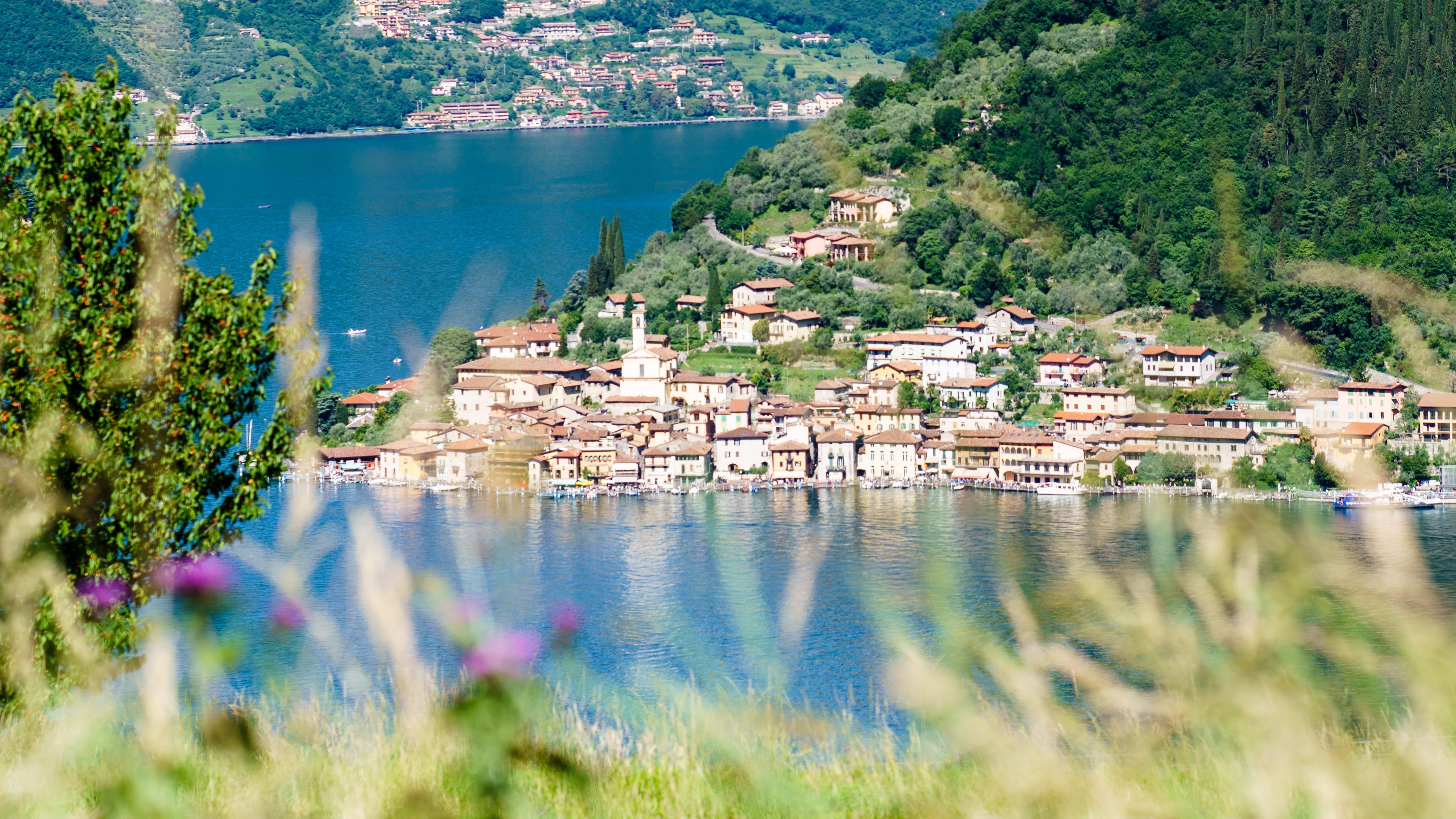
The weeks and months leading up to Jeroboam were busy with little opportunity to ride big distances, so my focus shifted to just ensuring I arrived a little lighter and ready to take on the long climbs. A 3T Exploro bike had been loaned to me prior to the event, so at least I was sure I would have no technological disadvantage.
One great thing about new events is the combined uncertainty of all riders—this adds a little extra spice to the experience. A day prior we received the GPX route file for the 300km. As I sat and waited in the airport for the XPDTN3 guys to arrive, I fired up the route on my laptop…12,000m of climbing! I messaged Uggi from AltomCykling.dk to ask about this crazy number; he said it couldn’t be right, but a few minutes later confirmed his GPX reader also showed the same. We both simultaneously prayed for computational errors to be at play here.
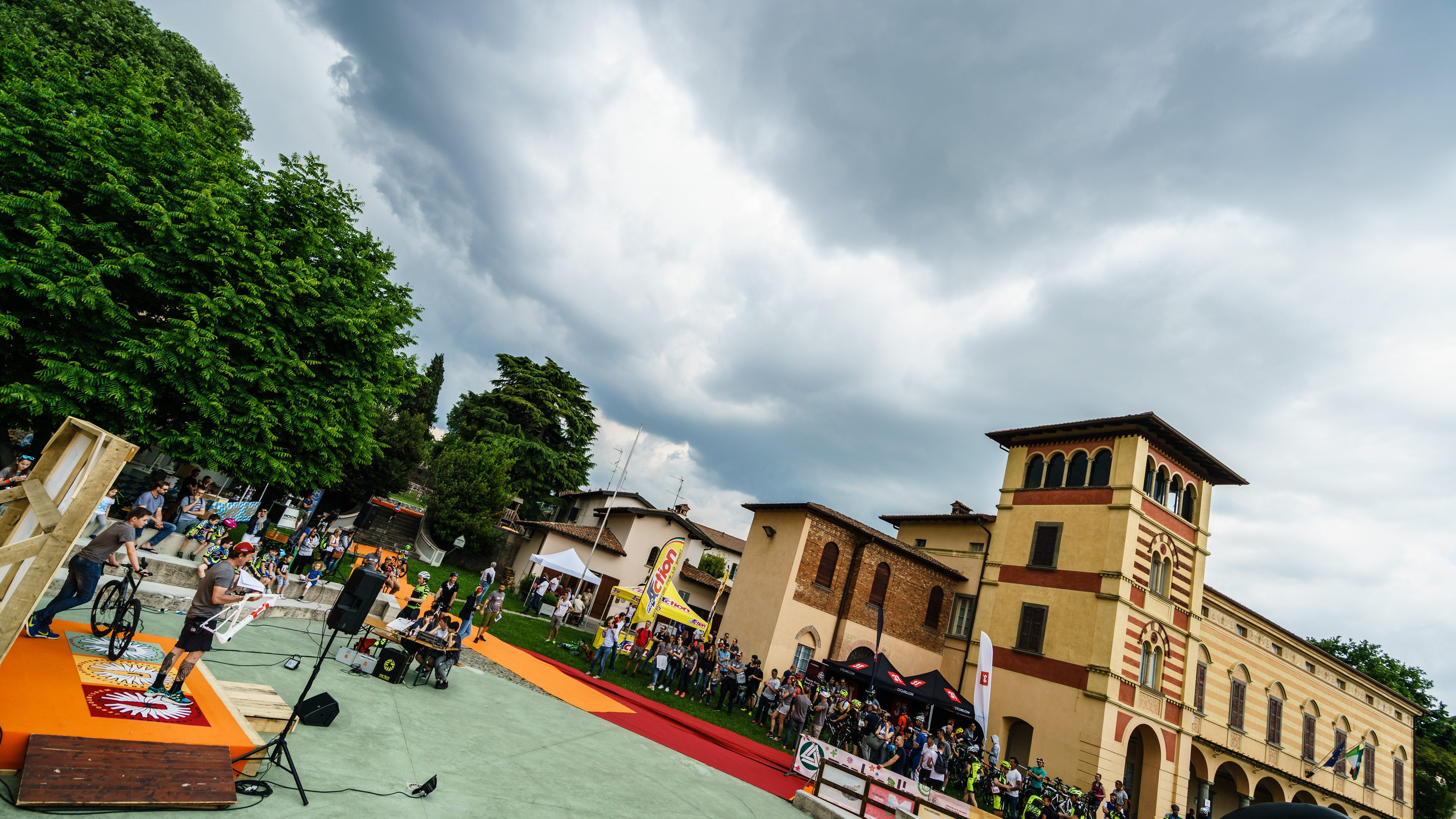
With a 16:00 start the day of the event was far more relaxed than normal. Lazy breakfast, last-minute bike tweaks, and then some pasta for lunch. The weather was glorious with the previous reports of heavy rain looking unlikely to come to fruition.
Soon enough, start time rolled around, and as we waited the grey clouds gathered overhead. With the first Jeroboam stamp in our route card we started pedalling just after 16:00. Not more than a few pedal turns later the rain started, then it got heavier, then it turned to hail. Our small group of riders rode up onto the pavement and sheltered in a doorway. Half a kilometre into our 300km adventure and already we were soaked.
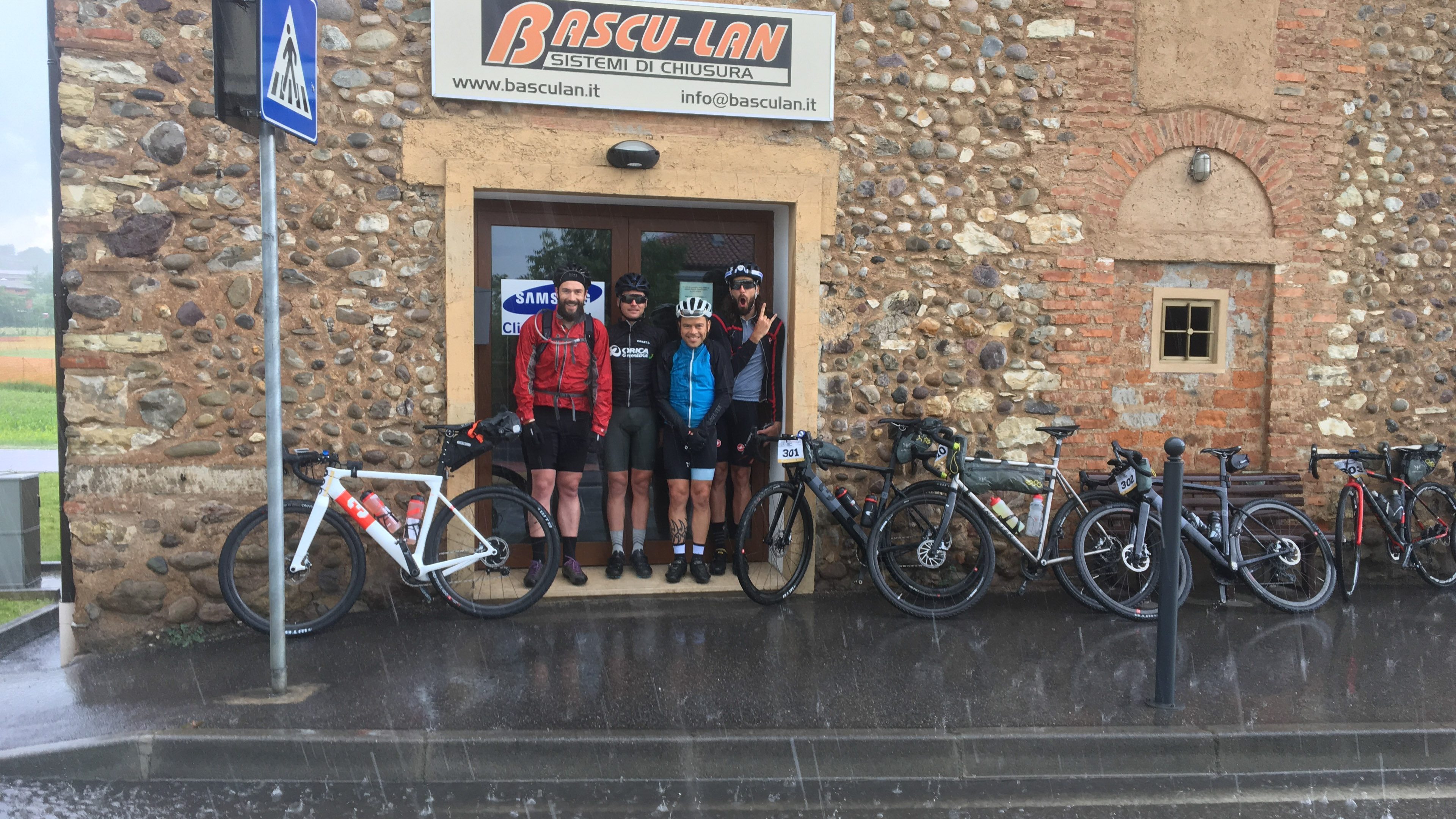
After 15 minutes the clouds looked to be lifting and the rain got lighter. We moved on.
Pre-event discussions of an easy-paced ride had obviously been forgotten, as Marcel Batlle and Christian Meier took to the front and drove the pace on until we started to catch those riders who had resisted some initial shelter. Soon our group had swelled to near 15 riders. We transitioned from the streets onto a gravel trail alongside the river, and not long after, hit the first climb of note. This early climb, not more than a few kilometres in length on a cobbled and rocky surface, provided opportunity for a selection of riders to be made. This saw me on the more painful side of the selection with a group obviously intent on getting back to the finish as quickly as possible. As I looked around our small group, I was riding with Marcel Batlle, Christian Meier, Roc Majoral, and David Koesel. I was definitely punching above my weight nestled amongst these much stronger guys. As I struggled to breathe on the climbs they chatted and ate.
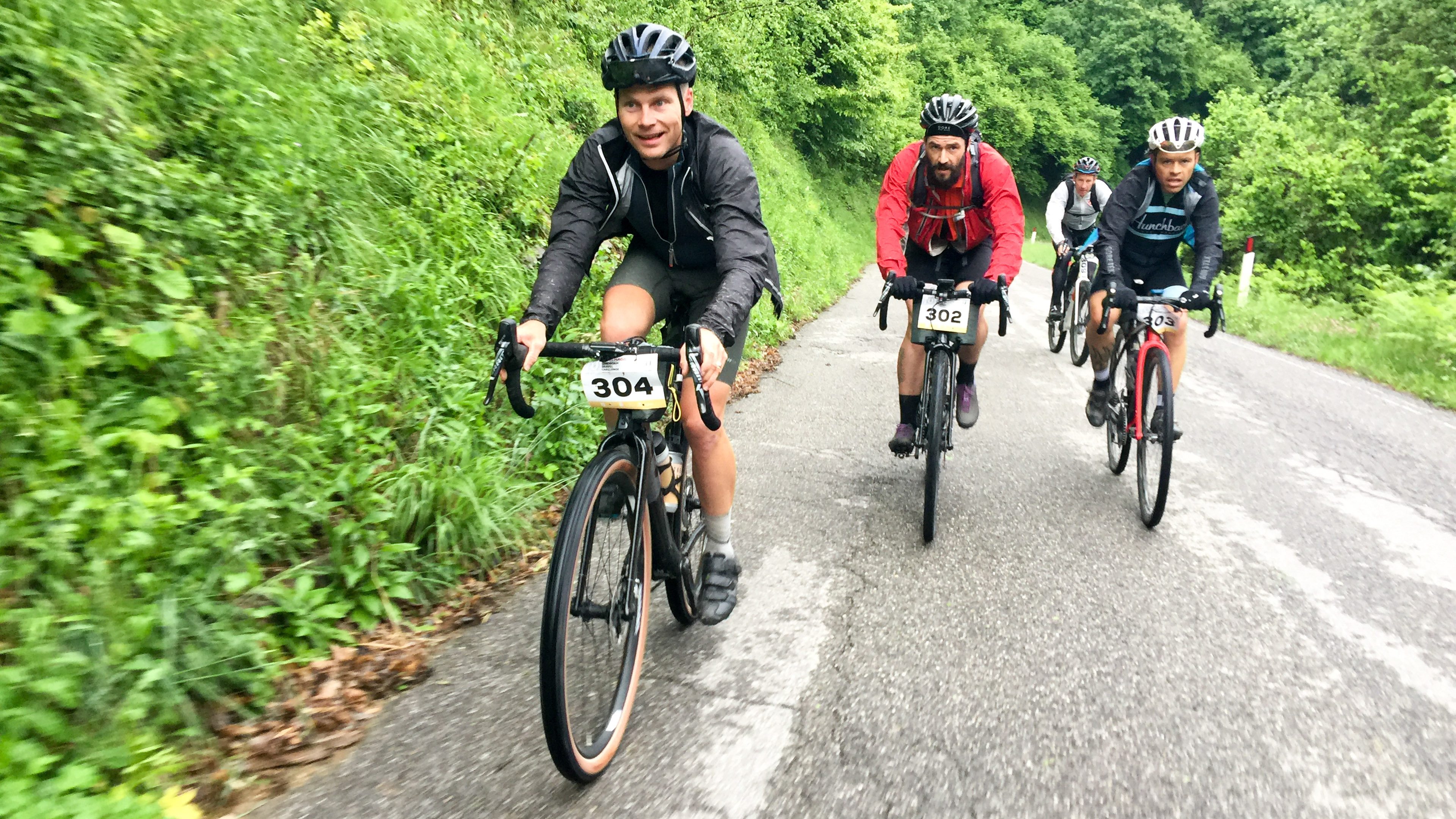
The course wasn’t textbook gravel riding, in fact I think it could genuinely be described as a mixed surface route. Soon after the initial selection, we began to climb; this lasted for over 15km on tarmac to reach the first checkpoint at the top. At around 80km we descended back down on a rocky cart track where a mountain bike would have been at home. This was a precursor for the routing surfaces we would generally find throughout the 300km: long tarmac climbs, rough descents, singletrack and gravel…every base had been covered here to ensure that no one rider or bike would have a distinct advantage.
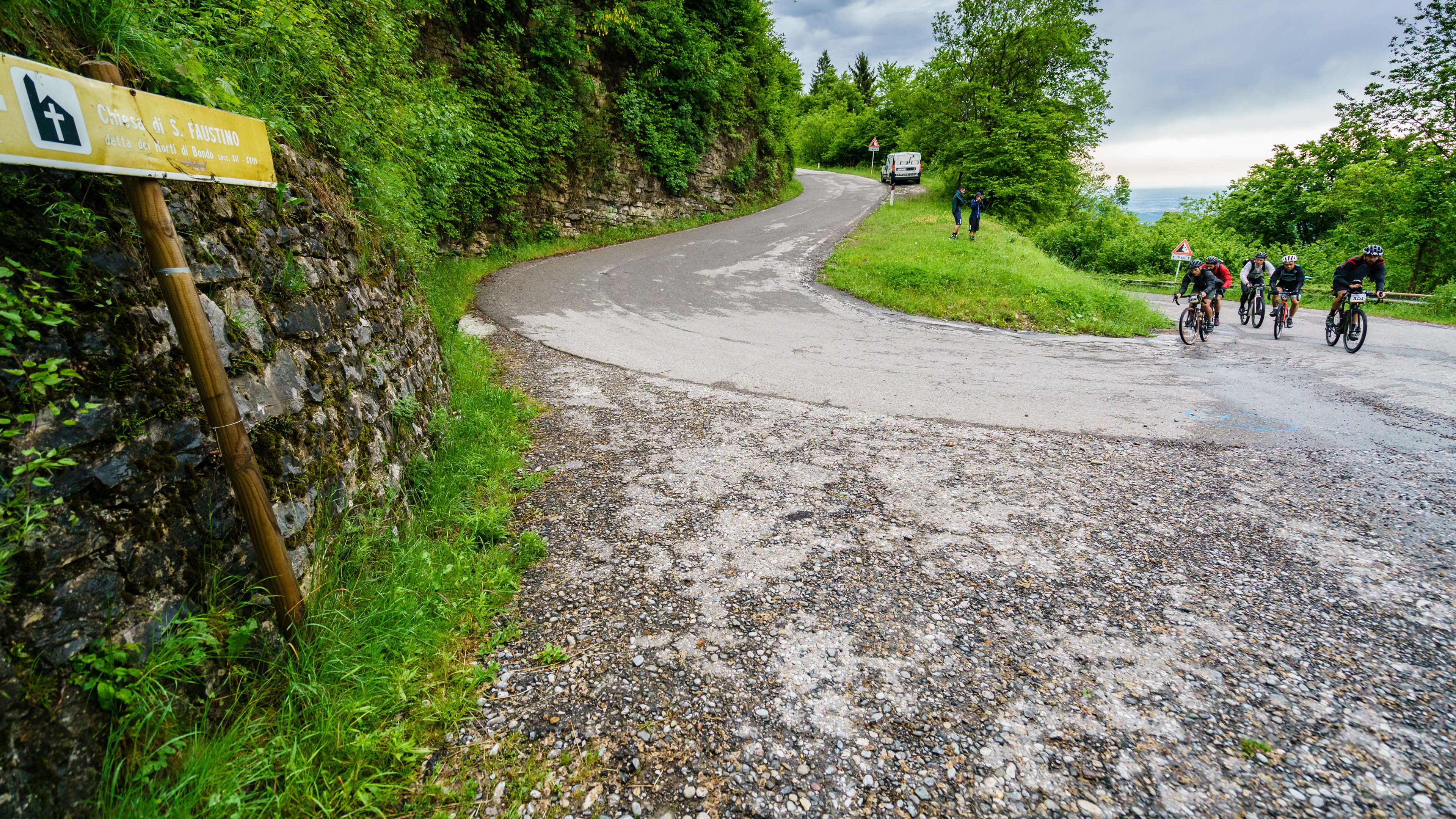
With a few tarmac climbs covered I was still, unbelievably, within the group. The riding was now far more flat as we headed beyond Lake Iseo towards the start of the long climb and the highest point of the event, Croce Domini Pass. As we made our way toward the impending climb we were riding hard on cycleways and minor roads. Every so often a navigational error would fire us past our intended path, so it would be all stop, turn round then build back up to speed again. This was punishing.
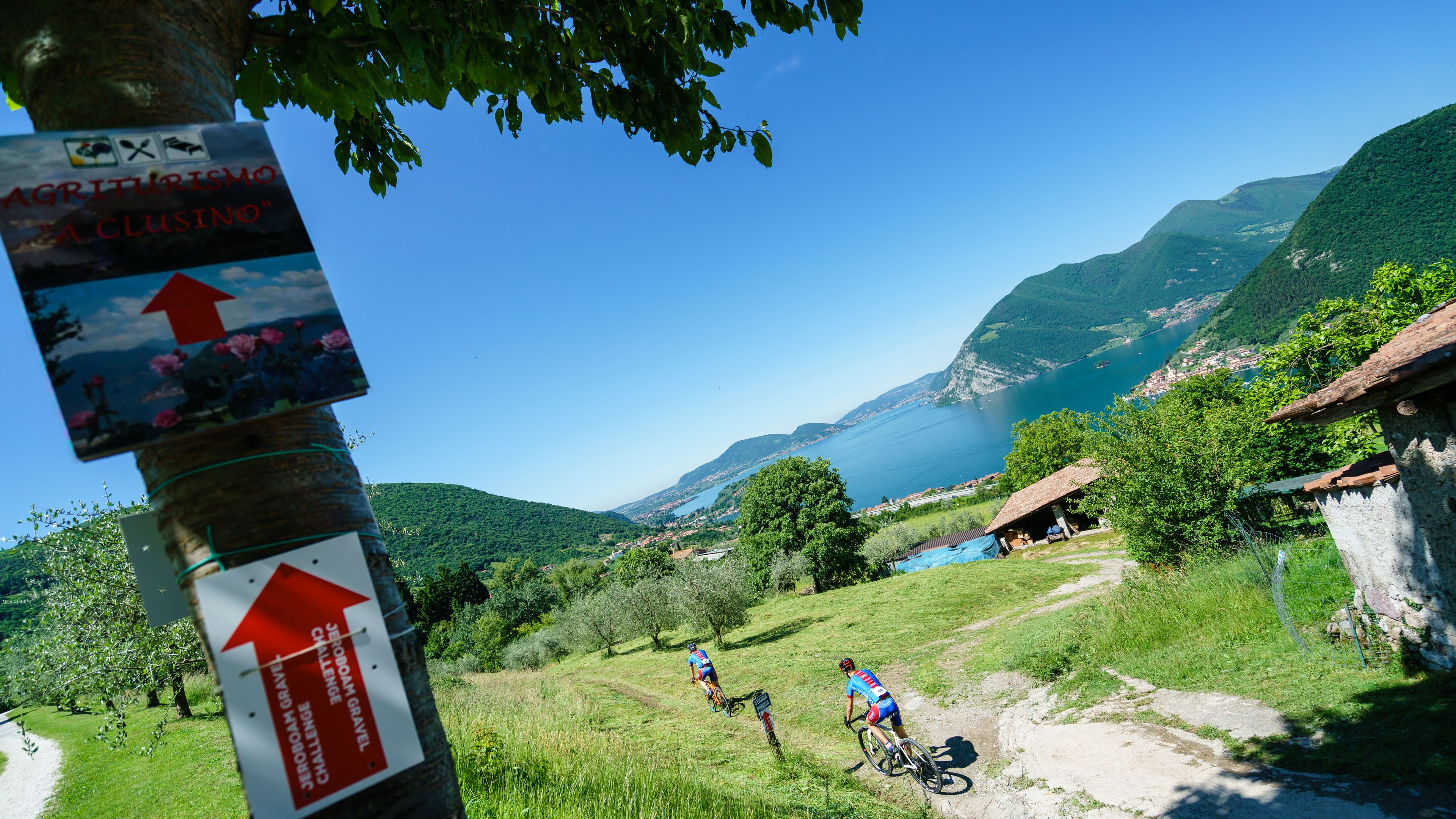
Finally we got to the start of the big climb: in just over 20km we needed to ascend over 1500m. With no more than the first 500m ridden I was dropped; the inevitable had finally happened, and instead of disappointment, I was happy to be able to settle in to my own pace. The riding was now in the dark lit by my front light. A mixture of the exertion to get to this point and the climb itself meant I was struggling to focus as the route only ever climbed upward. Over two hours later, the refuge acting as the second checkpoint was in sight. I had already decided that if Marc from XPDTN3 was there with his car covering the event, I was done—at this time I was happy to retire. Marc was there and as I tried to outline my desire to call it a day, he laughed, smiled and just pretended he hadn’t heard me. Inside and after some pasta and a hot chocolate my resolve returned and I was ready to continue on.
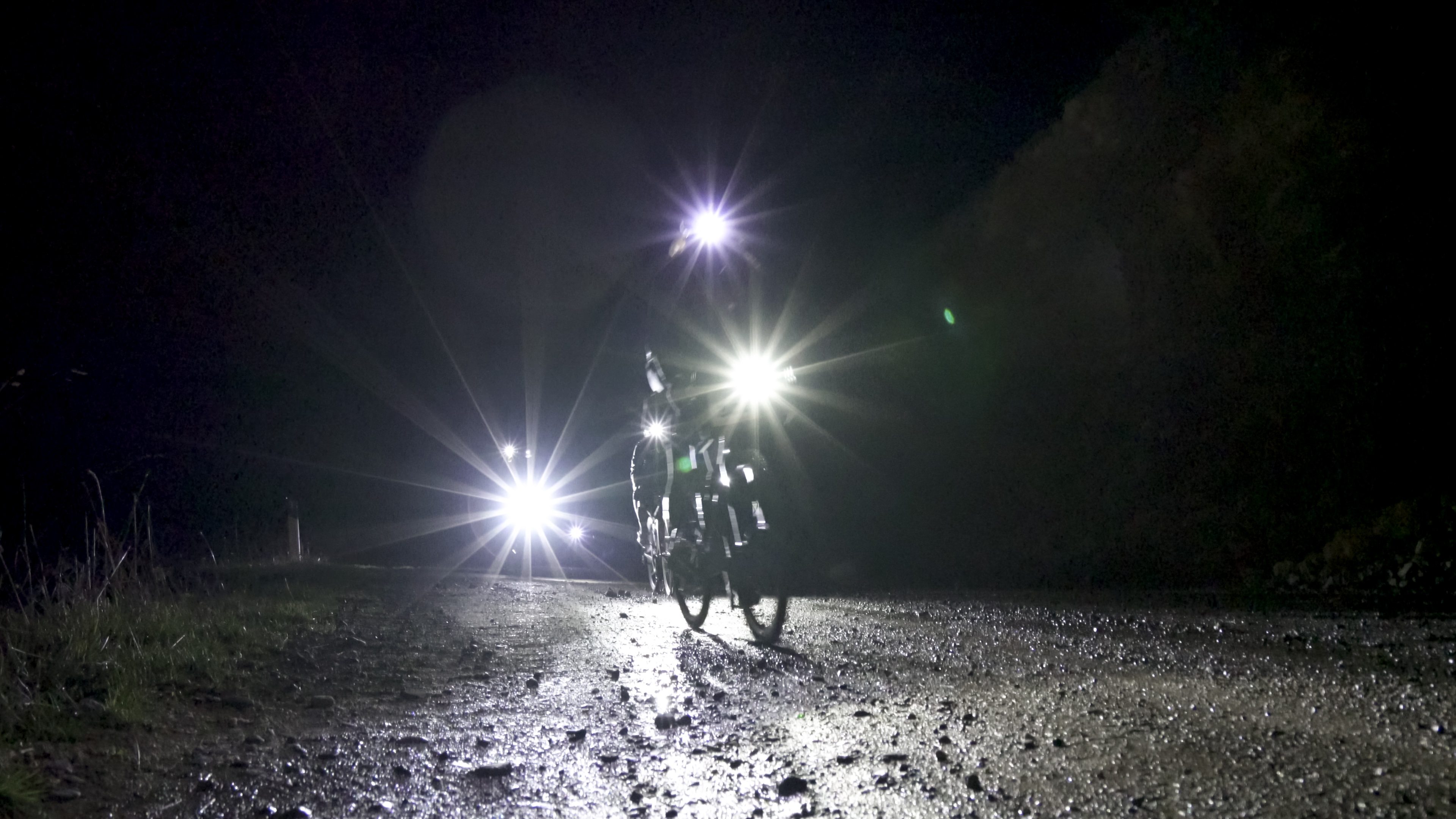
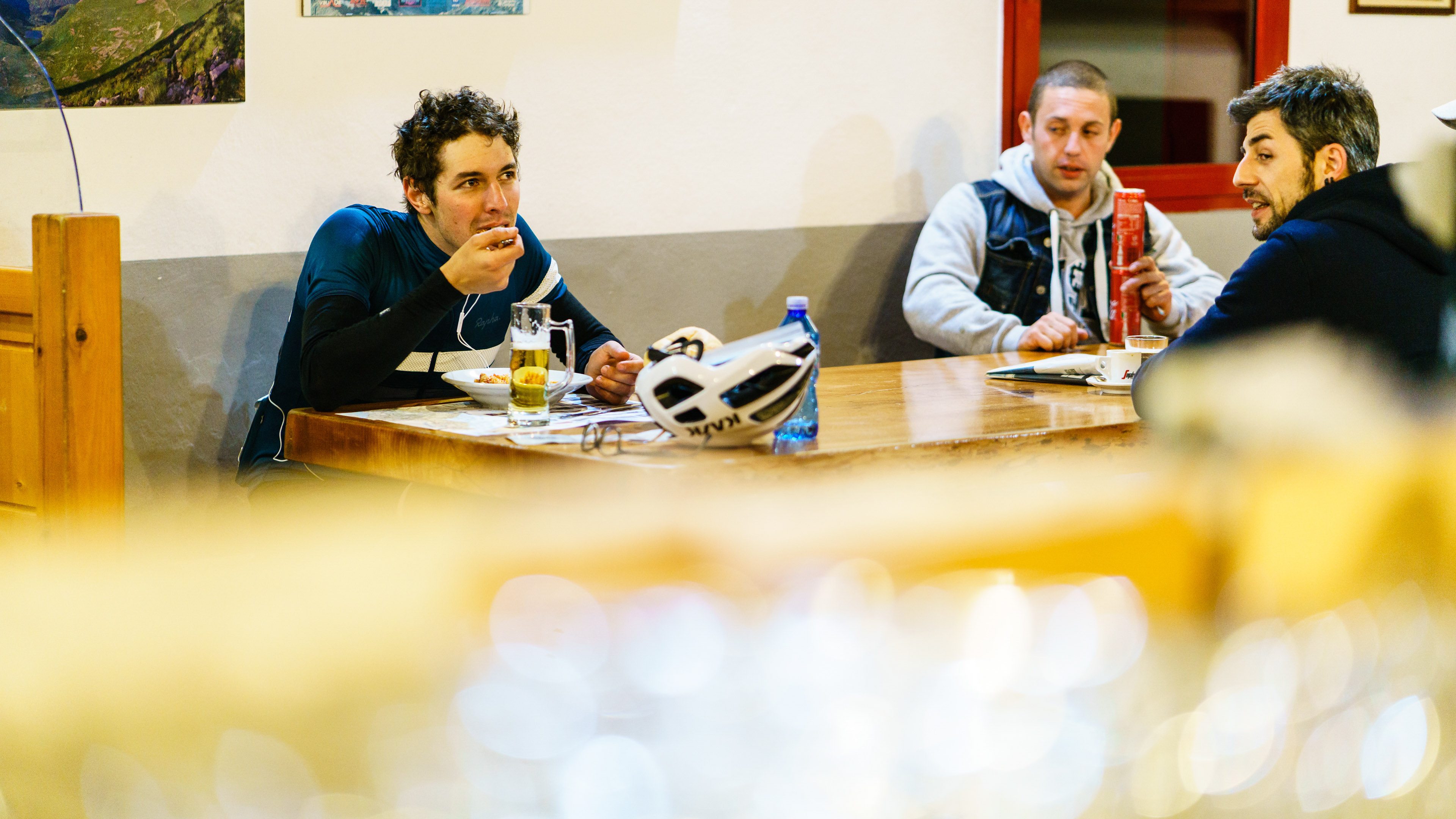
Now riding on my own I had the freedom of my own pace and thoughts. The route had immediately continued upward from the checkpoint on gravel, then icy tarmac, but then gave way to a more palatable mix of climbing and descending. There is something uniquely special about riding in these early hours as you see the towns free from people and cars. As I hit the shoreline of the lake to start the return leg, sunlight had once again started to return, and as darkness lifted so did my heavy eyes and heavier legs. Again in the sunlight I could ride with greater ease.
Progress was good as we switched between singletrack and tarmac on undulating terrain. Then to ensure total coverage of all surfaces available, we took a left from the road and entered some wooded, rooty trails. The trail was signed with ribbon hung from the trees, but one momentary lapse sent me in to an adjacent field requiring some bashing of undergrowth to achieve the trail again.
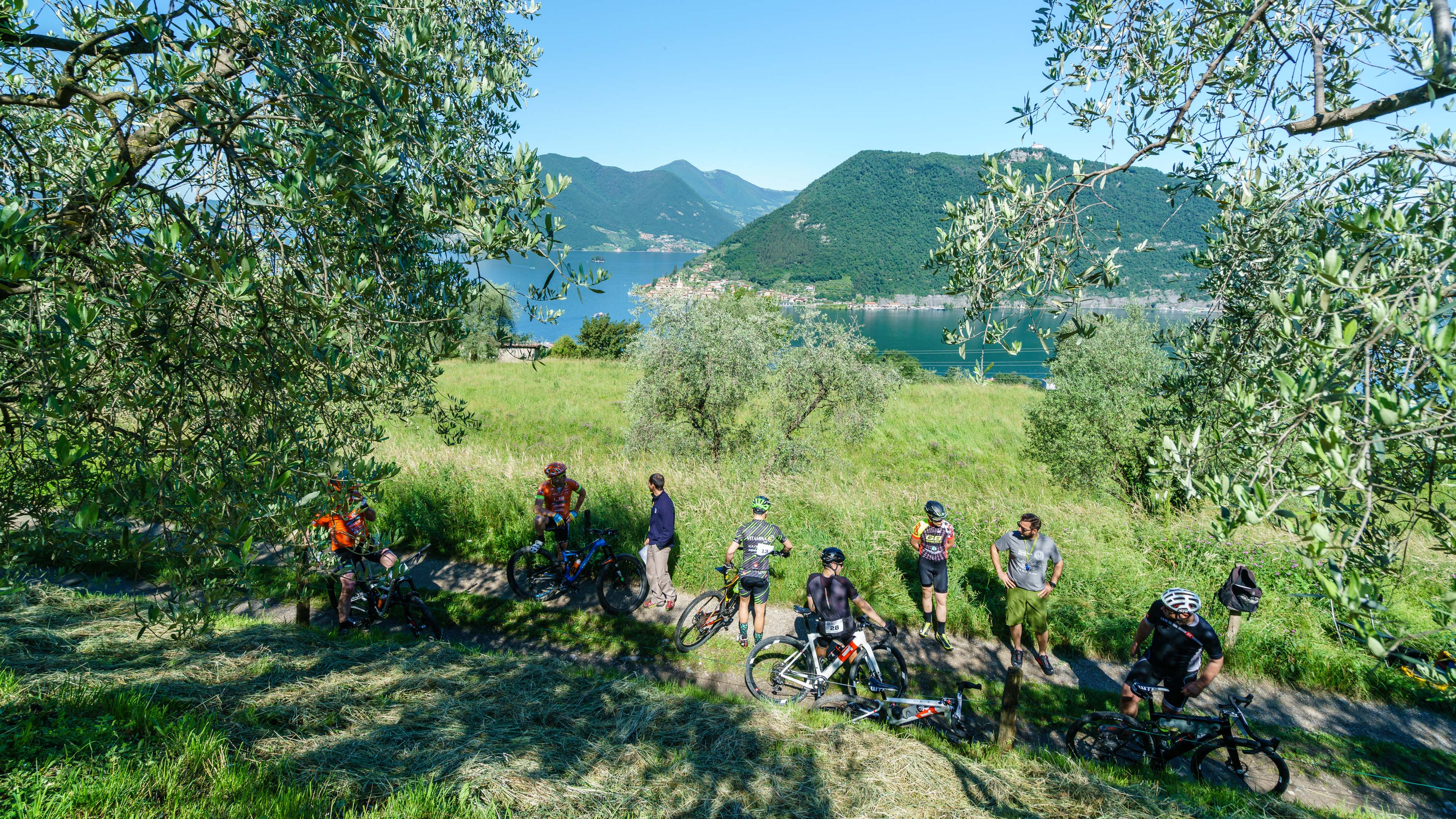
The cold of the night was now long since gone as I shed layers back to just the short-sleeved jersey. After another sustained road climb and a rolling descent, the third and final checkpoint was reached, route card stamped, then just the final 70km or so left to ride.
Though my legs were still okay, the time on the bike—now at almost 18 hours—had started to take its toll on my contact points, with both my hands and feet feeling swollen and sore.
The last section of the route sent the riders through the Franciacorta region with its many vineyards. A definite change from the previous scenery. Close to the finish, the 300km course joins that of the 150 and 75 routes. The route took in some rough dirt trails through the vineyards which may have been fun for the riders on the shorter courses, but the punishment at this late stage was felt throughout the body.
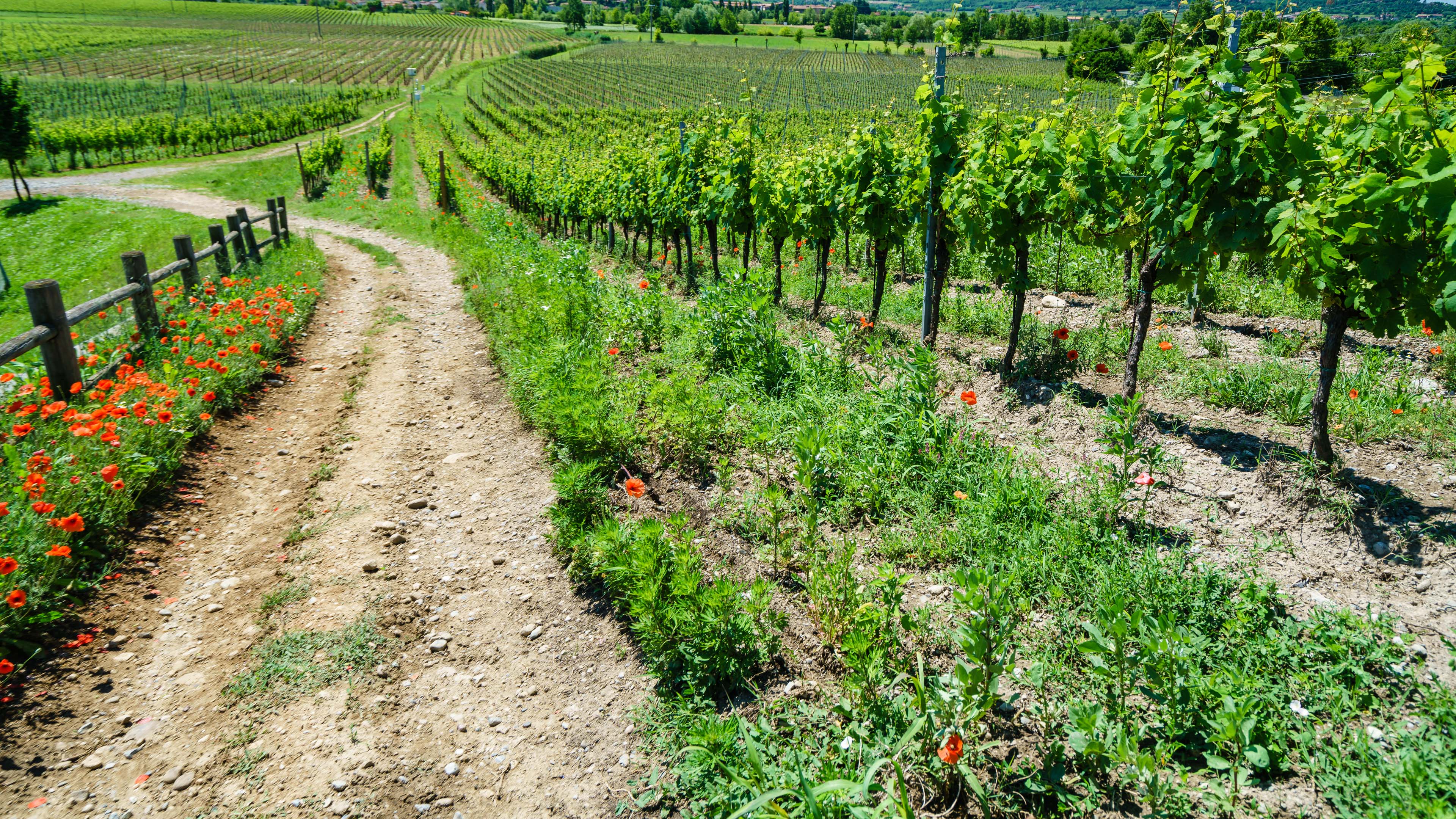
Crossing the finish line in Erbusco some 21 hours later it was obvious that the Jeroboam 300 was a serious undertaking. The climbing, course variety, and timing of the riding all construed to prevent the strongest of riders from completing the full distance. Note: total climbing was only around 6500m, thankfully, but often felt like 12,000.
With plans for future editions and also differing locations, the Jeroboam is set to be a calendar favourite amongst those who enjoy a true challenge.


The Jeroboam 300
2 thoughts on “The Jeroboam 300”
Comments are closed.

Excellent article, well done grit.cx
Excellent article, well done grit.cx